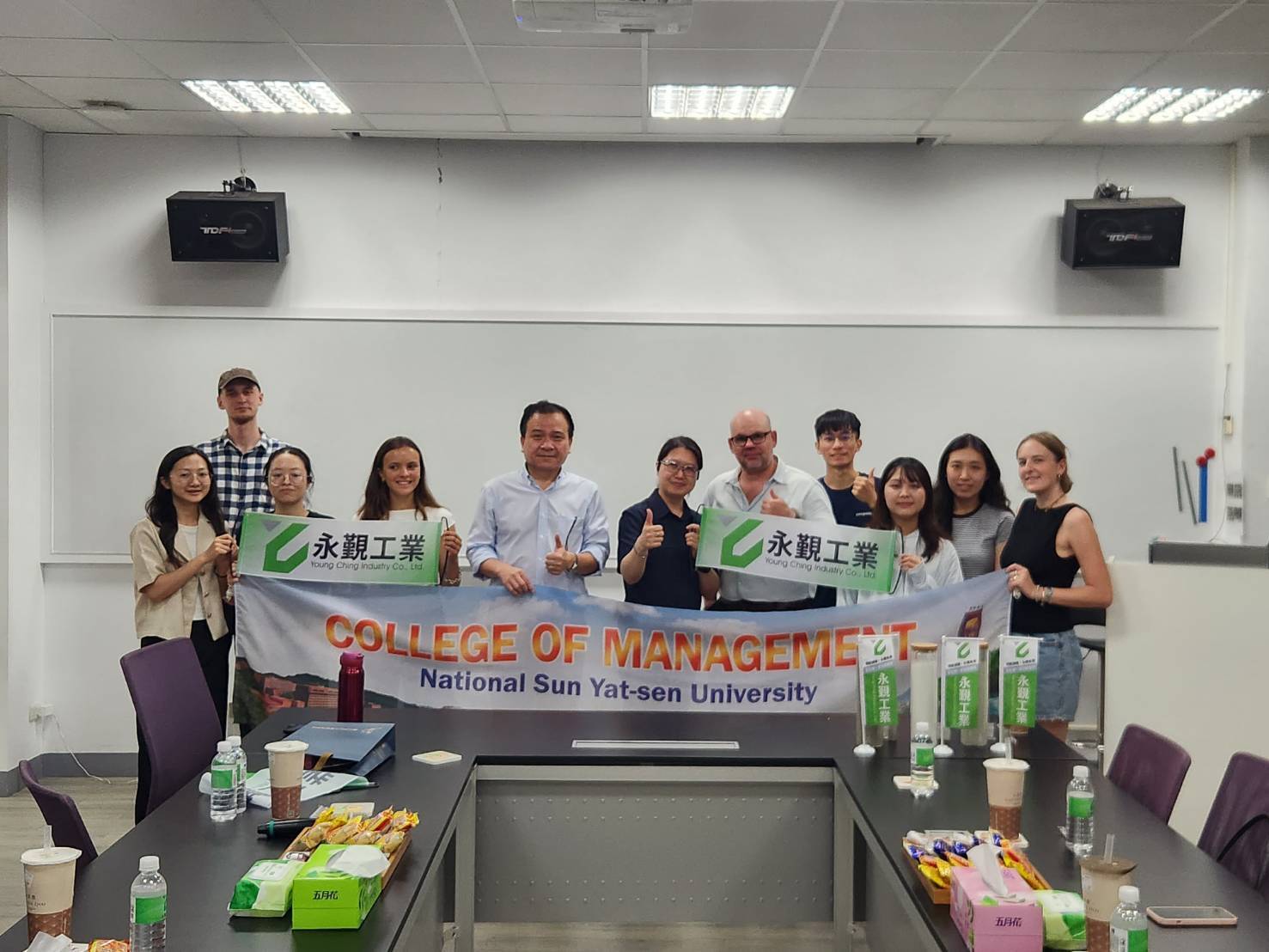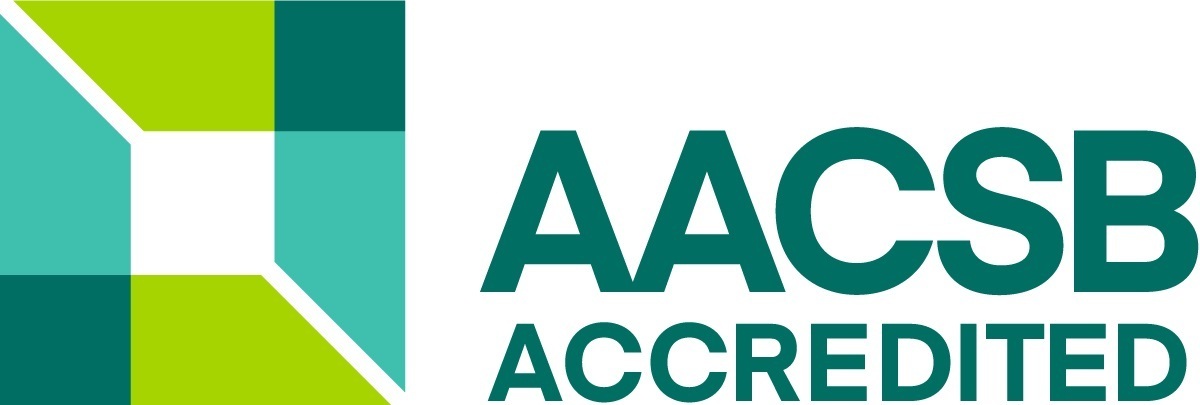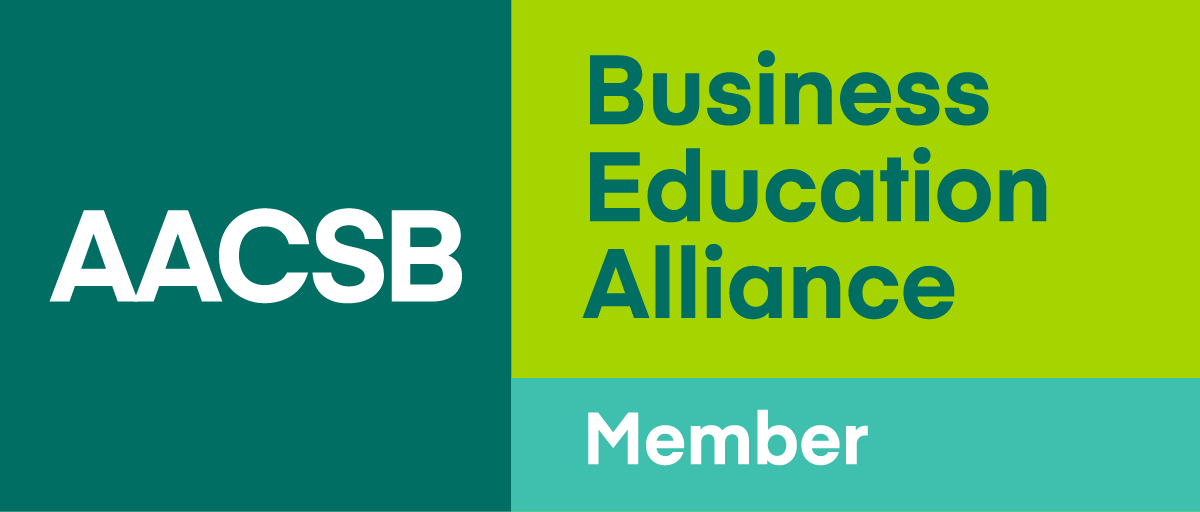[IBMBA] Field Trip to Young Ching Co.: Exploring Sustainable Innovation in the Construction Industry

As global economic development accelerates and demand for new infrastructure rises, industrial progress inevitably calls for new sustainable solutions to protect our environment. Taiwanese construction efforts have constantly contributed to global sustainability trends by introducing innovative alternatives to traditional building materials. Under the guidance of Professor Ryan Brading, students from the ‘Sustainability Global Enterprise’ Course – supported by Distinguished Professor Jack Hsu and teaching assistant Jan Filipp – embarked on a visit to the headquarters of Young Ching (永覲工業), a global leader in sustainable construction materials. This visit provided them a unique opportunity to witness cutting-edge technological advancements at their source.
The industrial workshop was led by Hsieh Shan Yu, the CEO of Young Ching and a distinguished alumnus of the college’s EMBA program. Joined by industry experts, Hsieh guided the students through an exploration of concrete components in the global market and highlighted the company’s enduring commitment to sustainability – a commitment that began over 50 years ago. During the visit, students were introduced to Young Ching’s flagship product: blast furnace slag. This innovative material has revolutionized the cement industry, enhancing durability while significantly reducing industrial impact. For students in Prof. Brading’s course, understanding the environmental, economic and political implications of adopting sustainable technologies is not just a learning objective – it’s a call to action for a greener future.
One of the main takeaways of that lesson was the origin of blast furnace slag. This powdered composite of modern concrete is a by-product of the steel-smelting process that used to be discarded and treated as ordinary waste in the past. With the application of blast furnace powder, the company makes further industrial use by recycling iron ore waste for materials to pave roads, construct buildings and prolong the lifespan of contemporary housing. According to Hsieh Shan Yu’s (CEO’s) words, the production of this material boasts 20 times lower carbon emissions to the environment than that of cement productions. This product contributes greatly to long-term sustainable efforts within the Construction Industry, yet the company’s mission does not simply end on the production of blast furnace slag.
Another crucial aspect of Young Ching Co.’s environmental strategy is the recycling of rubble from construction sites. While the specific technological processes remain within the company’s R&D scope, the host of the visit enthusiastically shared that reclaiming materials from demolished buildings and infrastructure is not only feasible but also practical. The real challenge lies in determining how much of the rubble can be effectively recovered to achieve both environmental sustainability and financial viability. For the students, this visit provided a tangible example of a circular economy—one that is not only eco-friendly but, as they later learned, also cost-efficient.
The final point addressed during the lecture segment of the field trip focused on the legal barriers hindering further international expansion. Currently, Young Ching’s flagship product – blast furnace slag – has become a staple in the majority of concrete structures built in Taiwan over the past forty years. Its global presence continues to grow as it is increasingly used as a sustainable additive in cement, offering a cost-effective, more durable, water-resistant, and environmentally friendly alternative to traditional cement.
However, despite its self-reliance and competitive advantage, blast furnace slag is permitted solely as an additive to concrete in many countries. This limitation is largely attributed to the powerful influence of the cement industry, which often shapes construction-related regulations to protect its market dominance and prevent the substitution of traditional materials. Young Ching’s experience in navigating these regulatory challenges provided students with a concrete example of a key lesson from the Sustainability Global Enterprise course: the political influence exerted by established industries can serve as a significant barrier to sustainable innovation.
Despite regulatory challenges, Young Ching continues to thrive, providing students with a firsthand look at its daily operations. Equipped with Young Ching construction helmets, the students experienced the realities of a processing plant and observed the transformation of steel industry waste into sustainable concrete. Experts guided them through each step of the process: from the initial transportation of raw materials, through grinding in massive turbines, heating, and finally, storage before being loaded onto trucks for delivery. Under the blazing Kaohsiung sun, this immersive experience proved to be both eye-opening and inspiring for everyone involved.
Throughout the workshop, students were treated to a generous selection of local delicacies, including snacks, milk tea, and rice rolls, courtesy of Young Ching Co., Ltd. However, the most significant “treat” was the rare opportunity to witness firsthand the future of sustainable construction, guided by the expertise of Young Ching’s team. The company hosted the group for the entire morning, with Professor Jack Hsu graciously assisting as both coordinator and translator. Special thanks are also extended to the College of Management at National Sun Yat-sen University, whose sponsorship made this insightful field trip possible.
-- Written by Jan Dariusz Filipp (Yanek)




